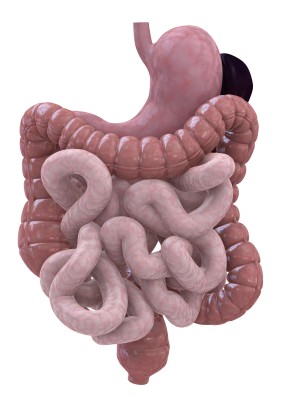Disorders of gut-brain interaction (DGBI) defines a series of disorders previously called functional GI disorders (FGID). The term has been changed because it is a more scientifically valid term and as a result is less stigmatizing (“functional” implies to some as being psychiatric rather than the true meaning of a disorder of GI functioning). DGBI are defined by symptoms rather than by any tests; it is a collection of symptoms attributed to the gastrointestinal tract that can range from esophagus to rectum. These symptoms develop from abnormalities in gastrointestinal motility, increased nerve sensitivity of the intestinal tract, altered mucosal immune function, alteration in the microbiome or dysregulation of the brain-gut nerve pathways. Symptoms produced can be any combination of nausea, vomiting, heartburn chest, abdominal or rectal pain or discomfort, diarrhea, or constipation. When these symptoms persist for at least 3 months and meet certain criteria (Rome IV), and radiological or endoscopic studies are negative, they are considered to fulfill criteria for a DGBI.
Read more about Disorders of Gut-Brain Interaction:
| Category: | Diagnosis |
| Date: | November 19, 2019 |

 5826 Fayetteville Rd., Suite 201 Durham, NC 27713
5826 Fayetteville Rd., Suite 201 Durham, NC 27713  (919) 246-5611
(919) 246-5611 
